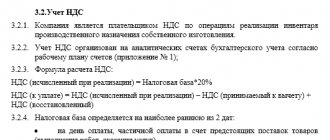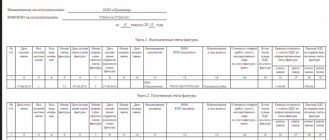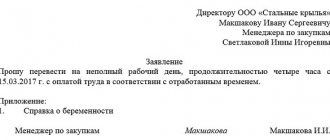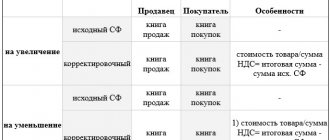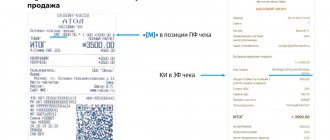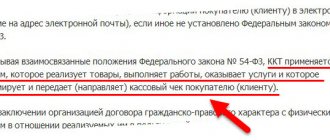Recently, tax authorities have become increasingly reluctant to accept tax returns.
For an organization, this can result in a whole bunch of problems, in particular:
- a fine for failure to submit reports (from 1,000 rubles to 30 percent of the tax amount, part 1 of article 119 of the Tax Code of the Russian Federation);
- blocking the account (if the declaration is not submitted after the expiration of the period plus 10 days, clause 1, clause 3, article 76 of the Tax Code of the Russian Federation);
- delay in VAT refund, since while the issue is being resolved, a desk audit of the declaration is not carried out.
Therefore, in order to counter the illegal refusal of the inspectorate to recognize the declaration as submitted, it is important to understand when, in accordance with the law, the reporting is considered submitted and when it is not.
Tax legislation in this regard contains different rules for tax returns and reporting on insurance premiums.
Tax returns
For them, the concepts of submitting them to companies and accepting them by inspections are differentiated.
It appears that legislators did this in vain, as confusion arises.
Thus, from the point of view of the Tax Code of the Russian Federation, if a company submits a declaration to the Federal Tax Service on time and in the prescribed form, then it will no longer face either a fine or blocking of its account. The desk audit should also start from this moment, since its beginning is precisely the day the declaration is submitted, and not at all the day it is received by the Federal Tax Service (Part 2 of Article 88 of the Tax Code of the Russian Federation).
Further, the Code literally states that the tax authority does not have the right to refuse to accept a declaration submitted in the established form (format) and is obliged, at the request of the taxpayer, to put a mark on its acceptance on the copy of the declaration.
Thus, according to the Tax Code of the Russian Federation, submitting and accepting a declaration is one and the same thing. The fact of submitting a declaration in the current form and its acceptance by the inspectorate are identified in the Code. He makes it clear that the submitted declaration cannot be rejected.
In addition to the Tax Code of the Russian Federation, this issue is also regulated by administrative regulations, dedicated, in particular, to the acceptance of declarations. It was approved by order of the Ministry of Finance of the Russian Federation and registered with the Ministry of Justice of the Russian Federation. Therefore, tax authorities are obliged to follow them. This regulation contains a list of grounds for refusal to accept tax reports, which inspectors use.
As a result, a contradiction arises between the Tax Code of the Russian Federation and administrative regulations, the right of organizations to consider the declaration submitted and the duty of inspectors not to accept or check it until the company submits a corrected version.
To be fair, we note that not all inspection refusals are motivated by reference to the designated regulations. Often, tax officials simply invent reasons for refusing to consider the declaration submitted.
It's getting to the point of absurdity. For example, the Federal Tax Service increasingly began to declare that they would not accept reports until they saw with their own eyes the general director of the company who signed it in his office. Or that the signs of fictitiousness available to the organization automatically turn the submitted declaration into fictitious, and therefore into unreal, that is, into unrepresented. Or that they will not accept a VAT return with deductions, since the counterparty did not submit “mirror” reporting for this tax, and until he deigns to submit his version and pay the tax to the budget, the company’s form will not be accepted for verification.
All this has nothing to do with the provisions of the Tax Code of the Russian Federation, which describe the grounds for considering a declaration not submitted. Therefore, the indicated actions of tax officials directly contradict the Code and are illegal. Calling a spade a spade is simply bureaucratic arbitrariness.
At the same time, it is sometimes possible to prove that this is so only in court. Read examples of court decisions in the reviews of judicial practice given below.
Calculation of insurance premiums
2. For the calculation of insurance premiums, in this sense, everything is somewhat simpler.
The legislation on insurance premiums does not divide the concept of representation into two components. The calculation is considered submitted, that is, submitted and accepted, if the company has not made a single error from the special list in the Tax Code of the Russian Federation.
At the same time, here too there are excesses on the part of previously extra-budgetary funds, and now tax inspectorates. Fortunately, it is also quite possible to prove the inconsistency of refusals to accept payments for contributions.
For clarity, we present the described rules for submission and acceptance of both types of reporting in the table.
TABLE: “Conditions for filing and accepting a tax return and calculating insurance premiums”
| What we rent | Performance | Reception |
| 1. Tax return | The date of presentation is considered to be: - if submitted in person - date of submission; - when sent by mail - the date of sending the postal item with a description of the attachment; — when transferred via TKS or through the taxpayer’s personal account – the date of its sending. Basis: para. 3 p. 4 art. 80 Tax Code of the Russian Federation | Grounds for refusal to accept from a legal entity: — filed with the wrong tax authority; — submitted in the wrong form or format; — not signed with a live/electronic signature; — the representative’s power of attorney is not attached. Reason: clause 28 of the Administrative Regulations, approved. By Order of the Ministry of Finance of the Russian Federation dated July 2, 2012 No. 99n |
| 2. Calculation of insurance premiums | It is considered submitted not just when sent, but provided that it correctly indicates: 1) the total amount of insurance premiums, coinciding with the amount of contributions for each employee; 2) data of all employees in subsection 3.1: full name, tax identification number, SNILS, date of birth, series and number of passport and other information; 3) information in the following columns of subsection 3.2: 210 – the amount of payments and other remuneration for each of the last three months of the reporting (calculation) period; 220 – the base for calculating pension contributions within the limit for the same months; 240 – the amount of calculated pension contributions within the limit for the same months; 250 – totals for columns 210, 220 and 240; 280 – the base for calculating pension contributions at the additional tariff for each of the last three months of the reporting or billing period; 290 – the amount of calculated pension contributions at the additional tariff for the same months; 300 – totals for columns 280, 290. Grounds: clause 7 of Art. 431 Tax Code of the Russian Federation | Separate grounds for refusal to accept payment of insurance premiums have not been established. Therefore, if a notification of refusal of acceptance is received from the tax inspectorate, then this may only mean one or another error in filling out the calculation from those indicated on the left |
| If the organization made a mistake from those mentioned in paragraph 7 of Art. 431 of the Tax Code of the Russian Federation, then the calculation of insurance premiums will not automatically be considered unsubmitted. The company will have the opportunity to improve. To do this, the inspection must inform the company of inaccuracies the next day after receiving the calculation, and the latter must submit a calculation with reliable data within 5 days. If the company does this, the date of filing of the calculation will be considered the date of its initial presentation. Otherwise, the calculation will be considered not submitted |
ARTICLE Prokazin E.A., editor-expert of the magazines “Time of the Accountant”
I submitted the declaration in the form on time, which means I submitted
The company appealed to the court with a demand to declare the suspension of account transactions illegal.
The reason for the blocking was that the company allegedly failed to submit a declaration on time.
The court began to look into it and brought to light the following logic in the actions of the tax authorities.
By unsubmitted declaration, they meant a declaration filed in violation of Art. 80 Tax Code of the Russian Federation.
Under the declaration submitted in violation of Art. 80 of the Tax Code of the Russian Federation, they understood the declaration that was not submitted in accordance with the form.
By a declaration not submitted in accordance with the form, the inspection meant a declaration not signed by the director.
Under the declaration, which was not signed by the director, the inspectors thought it was a declaration, the fact of signing of which the general director of the company denied to them during interrogation.
Additional argument: the company itself has signs of an organization that does not conduct real economic activities, since it is not located at a legal address, does not make transfers for salary payments, taxes, rent of premises and general business needs.
The court recognized this logic as not based on the provisions of the Tax Code of the Russian Federation.
The provisions of the Code state that the tax authority does not have the right to refuse to accept a tax return submitted in the prescribed form (clause 4 of Article 80 of the Tax Code of the Russian Federation).
Thus, the Federal Tax Service has the right to refuse to accept a tax return only if its form does not meet the established requirements.
At the same time, tax legislation, for the purpose of the tax authority accepting reports submitted to it, does not establish such powers as assessing the authenticity of a person’s signature on a declaration, or establishing the reality of the performance of his duties by the head of a legal entity or other person who signed the declaration.
In this case, the declaration was submitted on a valid form. The inspectorate had no complaints against him.
Consequently, the Federal Tax Service was obliged to recognize the declaration as submitted and had no grounds to suspend operations, the court concluded and ordered the account to be unblocked.
Resolution of the Federal Antimonopoly Service of the Moscow District dated September 23, 2013 No. A40-5705/13-116-16
Editor's note:
More recently, namely on February 15, 2021, the Federal Tax Service of the Russian Federation boasted on its website that the Arbitration Court of the Tomsk Region in a similar situation supported the tax inspectorate, which refused to accept the company’s declaration with reference to the testimony of the company’s director, who denied his participation in the management of the company.
However, this decision was not appealed by the company even on appeal.
The above decision is an act of the cassation instance with an opposite legal position in favor of the taxpayer in a similar situation.
No postal receipt - the declaration is considered not submitted
The company demanded that the Federal Tax Service be obliged to return VAT in the amount of about 35 million rubles.
This amount was declared in the declaration as a tax refund, but the inspectorate refused to recognize the reporting as submitted.
The court refused the company, pointing out two of its mistakes.
1. To confirm the fact that the declaration was sent on time, the company showed the judges a copy of the list of attachments in the valuable letter, which had a postmark and the date of dispatch.
However, a postal receipt for sending the correspondence was not provided.
In this regard, the judges concluded that an inventory of the contents alone is not sufficient evidence that mail was sent to the addressee. Need a receipt. It is the main document confirming payment for the services of the postal authority and the transfer of the registered valuable letter for dispatch.
This is stated in the rules for the provision of postal services (Order of the Ministry of Telecom and Mass Communications of the Russian Federation dated July 31, 2014 No. 234).
In addition, the post office, in response to a request from the inspectorate, reported that the letter with the number indicated in the inventory was not delivered to the post office.
2. The declaration is not accompanied by a power of attorney from the company representative who signed the declaration.
This became clear during the audit of the declaration by the inspectorate (that is, the reporting was nevertheless received by the Federal Tax Service).
The absence of a power of attorney was confirmed by the very same inventory - information about the direction along with the declaration of power of attorney was not in the inventory.
By virtue of paragraph 5 of Art. 80 of the Tax Code of the Russian Federation in such cases, a power of attorney must be attached.
Otherwise, it turns out that the declaration bears the signature of an unidentified person, which cannot indicate that a specific taxpayer indicated reliable information in such a declaration. Consequently, the inspection cannot accept the data specified in the declaration for verification.
Thus, the inspection had the right to consider the disputed declaration unsubmitted. Accordingly, the grounds for checking it and making a decision on refund or refusal to refund the VAT declared therein by virtue of Art. 88, 101, 176 of the Tax Code of the Russian Federation were absent, as well as for tax refund by the court at the request of the taxpayer, the court concluded.
Resolution of the Arbitration Court of the Moscow District dated 06/03/2015 No. F05-6301/2015.
Editor's note:
The court's decision appears to be motivated, but it is highly controversial.
Firstly, the inspection and the court recognized that the declaration was received by the tax authority. Hence it was presented. The absence of a postal receipt in this case no longer has any legal significance. After all, the whole danger of an offense in the form of failure to submit a declaration lies in the inability of the tax authority to verify the correctness of the company’s tax calculations. And when the inspectors have the declaration in their hands, there are no difficulties with this.
Secondly, clause 5 of Art. 80 of the Tax Code of the Russian Federation, although it requires a power of attorney to be attached to the declaration, does not contain an indication that in the absence of a power of attorney, the reporting is considered unsubmitted, while clause 4 of this article contains such a clause regarding the form. Thus, if the power of attorney is not attached, this is, of course, a violation of the Code, but it does not entail the recognition of the declaration as not submitted.
In general, tax authorities pay close attention to powers of attorney.
For example, in another case, they stated: despite the fact that the company sent them property and corporate income tax returns electronically, it could not submit a power of attorney in the same way (the company sent it to the inspectorate a few days before submitting the returns) , but had to either hand it in personally or send it by regular mail.
Therefore, the company was sent a notice of refusal to accept declarations on the following grounds:
- incorrect indication (absence) of information about the power of attorney (code 0100500000);
- lack of information about the power of attorney from the tax authority (code 0100500001).
The court declared these claims illegal.
When submitting a declaration in electronic form, a copy of the power of attorney may also be submitted in electronic form. This is stated in the last paragraph of paragraph 5 of Art. 80 of the Tax Code of the Russian Federation (Resolution of the Arbitration Court of the North-Western District dated August 16, 2016 No. F07-5975/2016).
Submitting a declaration to another Federal Tax Service at least reduces the fine
The entrepreneur was fined in the amount of 620 thousand rubles in accordance with paragraph 1 of Art. 119 of the Tax Code of the Russian Federation only because he submitted a declaration under the simplified tax system to the wrong tax office.
He appealed to the court with a demand to cancel the fine as not corresponding to the gravity of the offense.
The businessman explained that he submitted the declaration within the period established by law, and to the wrong inspectorate, not because of a deliberate violation of the law, but because of a technical error.
The judges did not cancel the fine entirely, but significantly reduced it - to 50 thousand rubles. As a basis, they indicated that the IP’s arguments are circumstances mitigating liability.
Resolution of the Arbitration Court of the Moscow District dated February 22, 2017 No. F05-1162/2017.
Violation of order and form does not fall under failure to submit
On the last day and hour of the deadline (04/27/2015 at 23:21) the company sent an electronic VAT return for the first quarter of 2015 to the Federal Tax Service.
The inspection identified errors that prevented the document from being accepted, and therefore sent the company a notice of refusal to accept the reports.
The next day the organization sent the declaration again.
However, the inspection refused this time due to:
- violations with error code 0300300000 – “The structure of the exchange file does not meet format requirements”;
- many errors with code 0300300001 - “The file does not match the xsd schema.”
For the third time, on April 29, 2015, the declaration was accepted by the inspectorate.
But at the same time, she decided that since the organization violated the format for submitting the tax return, and it was not accepted for processing, this should be qualified as failure to submit the return within the established time frame.
On this basis, the company was fined under paragraph 1 of Art. 119 of the Tax Code of the Russian Federation in the amount of 148 thousand rubles.
The company went to court, providing the arbitrators with confirmation of the dispatch date dated 04/27/2015.
The court determined that the form and format of the return itself, originally submitted on April 27, was in compliance with the established requirements, and the discrepancy related to the format of presentation of Exhibit No. 9 (sales book) to the return.
However, violation of the procedure, form or format for submitting a tax return does not constitute an offense under Art. 119 of the Tax Code of the Russian Federation. This provision establishes liability for a certain offense – failure to submit a declaration within the prescribed period.
Consequently, violation of the procedure and form for submitting the declaration does not constitute an offense specified in this article.
The fine was canceled.
Resolution of the Arbitration Court of the North Caucasus District dated December 2, 2016 No. F08-9002/2016.
Update your 1C software
First of all, to resolve error 0400400007, we recommend updating your software. If, for example, you use the local version of 1C to submit reports, then you will need to install the necessary 1C update, which may contain a new format scheme with the .xsd extension.
Update your version of the software product to the most current state
If it is too difficult for you to independently update the software package you are using, contact the support service that services the program you are using and request a software update. Usually, after this, your company will be visited by a responsible specialist who will update the system and install all the necessary updates.
Contact the specialists who support your reporting system.
After installing the update, error 0400400007 is usually resolved. Generate the report file again and send the report to the tax office.
This will come in handy: incorrect indication of the location for submitting information 0100200000 - how to fix the problem?
Errors in file format are not covered by failure to submit
Based on the results of a desk audit of the VAT tax return, the inspectorate brought the organization to justice under clause 1 of Art. 119 of the Tax Code of the Russian Federation in the form of a fine in the amount of 124 thousand rubles.
The reason was that although the declaration was submitted on time, instead of the “tax reporting” format, it was sent to the inspectorate in the “unformalized document” format. For this reason, inspectors were unable to open the received electronic file.
The organization did not agree with the fine and went to court.
She stated that she received both confirmation of dispatch and a receipt for delivery of the file to the tax authority, from which it follows that on the day of sending the file was received by the inspectorate.
The arbitrators supported the company.
The judges indicated that, according to clause 4 of the Procedure approved by Order of the Ministry of Taxes of the Russian Federation dated April 2, 2002 No. BG-3-32/169, the date of submission of the tax return in electronic form is the date of its dispatch, recorded in the confirmation of the specialized telecom operator.
At the same time, technical errors when transferring electronic files do not affect the taxpayer’s fulfillment of this obligation.
Article 119 of the Tax Code of the Russian Federation provides for liability only for violating the deadline for submitting a declaration. Other violations related to the procedure for filing it, including the receipt by the tax authority of unreadable information, do not constitute an offense under this article.
Thus, there is no event of an offense, which, by virtue of Art. 109 of the Tax Code of the Russian Federation is a circumstance that excludes the company being held liable.
Resolution of the Federal Antimonopoly Service of the West Siberian District dated April 26, 2011 No. A27-11908/2010.
What happens if the error is not resolved in a timely manner?
So, the policyholder received a negative protocol with a notification of error 0400400011 in the calculation of insurance premiums. Will the tax authorities punish you for it or will it be possible to do without penalties?
Identification of distortions in reporting contributions is not in itself grounds for imposing a fine. The business entity is given a certain time to eliminate the error:
- 5 days if communication between the fund and the employer is maintained via TKS;
- 10 days if the calculation is submitted and the notification is sent by tax authorities on paper.
During this period, you will need to find the error and retake the report.
NOTE! A calculation resubmitted due to its initial non-acceptance and elimination of errors will not be updated. It will be considered the original form.
If the policyholder ignores the tax authorities’ request to resubmit the form, the report will be considered not submitted. And only here will the tax service have grounds for sanctions. They will be as follows:
- a fine for failure to submit a calculation in the amount of 5% of the amount of contributions not paid on time for each full or partial month of delay, but not more than 30% of the specified amount. The fine cannot be less than 1000 rubles;
Important! ConsultantPlus warns: The fine is calculated separately for each type of compulsory social insurance (Letter of the Federal Tax Service of Russia dated June 30, 2017 N BS-4-11/ [email protected] ). A fine of 1,000 rubles. distributed to the budgets of state extra-budgetary funds in the same proportion... Read more about the distribution of the fine in K+, having received free demo access to the K+ system.
- warning or administrative fine imposed on officials of organizations;
- blocking of the current account if it is overdue by more than 10 working days.
Considering the difficulties payment of fines and account blocking cause business entities, it is better to hurry up with correcting all errors and resubmitting the calculation.
Errors in file structure are not covered by non-representation
The organization sent its annual land tax return to the Federal Tax Service within the prescribed period.
However, I received in response notifications of refusal to accept on the grounds that the declaration contains errors regarding the indication of the checkpoint, which is why it cannot be accepted for processing, and there is also no message about the power of attorney and information about the manager is incorrectly indicated.
The organization corrected these errors, but submitted the declaration in paper form.
The Federal Tax Service accepted it, but nevertheless fined the company under Art. 119.1. Tax Code of the Russian Federation for violation of the method of reporting.
The organization went to court, believing that the fine was imposed unlawfully. Indeed, by virtue of paragraph 4 of Art. 80 of the Tax Code of the Russian Federation, when transmitting a declaration via telecommunication channels, the day of its submission is considered the date of its dispatch.
The judges supported the company.
They admitted that since the organization complied with the requirements of Art. 119.1. Tax Code of the Russian Federation, namely, the declaration was initially submitted in electronic form within the period established by law, then the company’s actions do not constitute a tax offense and, accordingly, holding it accountable for lack of guilt is unlawful.
Resolution of the Federal Antimonopoly Service of the Volga District dated March 19, 2013 No. A49-5219/2012.
The load on the operator’s server does not change the fact that the declaration has been sent
On January 20, the last day of the deadline, the company sent the VAT declaration for the fourth quarter of the previous year to the Federal Tax Service, but confirmation of dispatch was not received from the operator.
The next day, the accountant contacted a representative of the operator, who said that the program did not warn about failures in the transmission, but there really was no data on the transmission of the declaration.
On January 22, the accountant sent the declaration again and received confirmation from the operator. Having accepted it, the Federal Tax Service decided that the company did not submit the declaration within the prescribed period, and issued a fine under paragraph 1 of Art. 119 of the Tax Code of the Russian Federation in the amount of 75 thousand rubles.
The company went to court, arguing that January 20 should be considered the reporting date. As confirmation of the initial dispatch on this day, the company presented a reporting file, as well as a printout of data from the program.
The arbitrators found that the fixed date for sending the declaration was January 22.
However, the fine was canceled because, according to information received from the operator, on the 20th, its server was overloaded due to mass reporting. Because of this, the reporting was not sent to the Federal Tax Service.
Thus, all necessary actions were taken on the part of the society for timely dispatch, and no error message was received to it. Therefore, the company is not to blame for what happened.
In accordance with paragraph 2 of Art. 109 of the Tax Code of the Russian Federation, a person cannot be held accountable for committing a tax offense in the absence of his guilt in committing a tax offense.
Considering the above, there are no grounds for holding the company liable,” the court concluded.
Resolution of the Federal Antimonopoly Service of the Moscow District dated July 26, 2011 No. KA-A40/7709-11.
Quarterly income tax returns do not fall under Article 119 of the Tax Code of the Russian Federation
The Supreme Court of the Russian Federation clarified that Art. 119 of the Tax Code of the Russian Federation, which punishes late submission of a tax return, does not apply to failure to submit or untimely submission of advance payment calculations based on the results of the reporting period. Moreover, regardless of how this document is named in one or another chapter of part two of the Tax Code of the Russian Federation.
This conclusion follows from the interrelated interpretation of paragraph 3 of Art. 58 and paragraph 1 of Art. 80 of the Code. It allows us to conclude that there are significant differences between tax and advance payment, that is, preliminary payment of tax, which, unlike tax, is paid not according to the results, but during the tax period.
Accordingly, from this norm it follows that there is a distinction between two independent documents:
- tax return submitted at the end of the tax period;
- calculation of the advance payment submitted at the end of the reporting period.
Resolution of the Plenum of the Supreme Arbitration Court of the Russian Federation dated July 30, 2013 No. 57.
Editor's note:
It would seem that these explanations should have been known long ago. After all, almost 5 years have passed since their publication, and the author is the highest court.
However, in practice, inspectorates continue to impose fines under Art. 119 of the Tax Code of the Russian Federation, as well as block accounts for late submission of quarterly income tax returns. Courts, on the basis of these clarifications, cancel such fines and blockings (Determination of the Supreme Court of the Russian Federation dated March 27, 2017 No. 305-KG16-16245).
Who will write off taxes and contributions?
The procedure for providing the new benefit is regulated by Federal Law No. 172-FZ dated 06/08/2020. Taxes will be written off to the following categories:
- Individual entrepreneurs and organizations that are included in the register of SMEs based on the results of tax reporting for 2021 and operate in the industry from the list of those most affected by the coronavirus.
- Non-profit organizations that are included in the register of socially oriented organizations and, starting from 2021, receive government subsidies and grants.
- Centralized religious organizations and socially oriented NGOs established by them, as well as religious organizations that are part of the structure of centralized religious organizations.
The deadline for submitting information for 2021 for inclusion in the register of SMEs has been extended: reports can be submitted until June 30, 2020. If you are included in the register, you will be entitled to all government support measures for small and medium-sized businesses.
The Federal Tax Service has launched a service that will help you figure out whether you are entitled to exemption from taxes, advance payments and contributions. It is enough to enter the TIN and select the applicable taxation system. The service will show information about payments from which you are exempt.
The maiden name in the calculation of insurance premiums is not a hindrance to consider it represented
One of the grounds for refusal to accept payments for insurance premiums by virtue of clause 7 of Art. 431 of the Tax Code of the Russian Federation is reflected in section 3 “Personalized information about insured persons” of the calculation of unreliable personal data identifying employees.
When accepting the calculation, the inspectorate checks this data with the information available in the information resources of the tax authorities. If it turns out that the calculation contains outdated personal data, the tax authorities still have the opportunity to identify the individual - using information that has lost its relevance on the date of submission of the calculation.
Therefore, the indication of outdated personal data in the calculation does not prevent its acceptance by the inspectorate.
Moreover, paragraph 7 of Art. 431 of the Tax Code of the Russian Federation, the payer is given the opportunity to eliminate identified inconsistencies. He can do this within 5 days from the date the inspectorate sent him the relevant notification in electronic form.
Letter of the Federal Tax Service of the Russian Federation dated January 16, 2018 No. GD-4-11/574.
Editor's note:
Errors in calculating insurance premiums for compulsory health insurance will not be a reason to consider the calculation of insurance premiums unsubmitted. About this with reference to paragraph 7 of Art. 431 of the Tax Code of the Russian Federation is stated in the letter of the Federal Tax Service of the Russian Federation dated February 19, 2018 No. GD-4-11/ [email protected]
Judicial practice regarding the refusal of tax authorities to accept payment of insurance premiums based on any of the grounds in paragraph 7 of Art. 431 of the Tax Code of the Russian Federation has not yet taken shape.
Additional reasons not to accept the declaration
And if you think that we have sorted out the entire list of reasons for refusal, we still haven’t. There are additional grounds for refusing to accept tax reports.
Clause 142 of the Administrative Regulations for the provision of public services for the acceptance of tax returns, approved. By order of the Federal Tax Service of the Russian Federation dated 07/08/2019 No. ММВ-7-19/343 informs us about what series of mandatory details the declaration must contain (regardless of whether it is paper or electronic), without which the reporting is considered not accepted.
Details for individual entrepreneurs: the declaration must include the surname, first name and patronymic (if any) of the individual entrepreneur.
Details for LLC:
- Full name of the organization.
- TIN.
- Type of document (primary, corrective).
- Name of the tax office.
- Signature of the persons responsible for confirming the accuracy and completeness of the information specified in the tax return/calculation.
If the declaration/calculation does not contain the required details from the list above, the tax inspector informs the organization that the declaration has not been submitted/accepted, with a mandatory list of reasons for the refusal. The tax office is required to send a request indicating the reasons for refusing to accept the declaration. This requirement excludes the illegality of the Federal Tax Service's refusal to accept reports. If the details are filled out incorrectly, the tax inspector must inform about the procedure for filling out the declaration and offer to correct the errors as soon as possible. If it is not possible for an LLC/IP to eliminate errors as soon as possible, then the declaration will be considered accepted, marked/stamped “To be clarified.”
Refusal to accept RSV due to discrepancies
If there are such discrepancies, it will unfortunately not be possible to convince the Federal Tax Service to accept the calculation. The Federal Tax Service will accept the calculation only if there are no discrepancies in it.
Chapter 34 of the Tax Code of the Russian Federation directly stipulates that the calculation of contributions is considered not submitted if the amount of contributions to compulsory pension insurance for all sections 3 (for all employees) does not coincide with the total value for the organization as a whole, reflected in subsection 1.1 (contributions to compulsory pension insurance for the main and reduced tariffs) Appendix No. 1 to Section 1 of the calculation. Moreover, this equality must be carried out based on the results of each month, quarter and on a cumulative basis from the beginning of the year. If this equality is not met, tax authorities will not accept either electronic or paper calculations (clause 7 of Article 431 of the Tax Code of the Russian Federation, Letter of the Federal Tax Service dated December 29, 2017 No. GD-4-11 / [email protected] (clause 03-05)) .
Since a discrepancy is discovered, the Federal Tax Service sends you a notice of non-acceptance of the calculation and gives you time to correct it. For electronic payment submission, this is 5 working days from the date of sending the notification (Clause 7, Article 431 of the Tax Code of the Pension Fund). If you meet this deadline, then the calculation will be considered submitted on the day you submitted it initially (clause 7 of Article 431 of the Tax Code of the Russian Federation). But if not, then the tax authorities may fine you for late submission of the calculation (Clause 1 of Article 119 of the Tax Code of the Russian Federation).
The fact that you submitted a paper payment instead of an electronic one did not save you. And it's predictable. But in addition, additional negative consequences are possible. The Federal Tax Service may fine your organization 200 rubles. for the fact that you violated the method of submitting the calculation - you submitted the calculation on paper, and did not send it according to the TKS (Article 119.1 of the Tax Code of the Russian Federation). After all, if the average number of individuals is over 25 people, payers are required to submit calculations of contributions in electronic form, as the inspectorate indicated to you (clause 10 of Article 431 of the Tax Code of the Russian Federation).
By the way, to reduce the fine, you can submit a petition to the Federal Tax Service for mitigating circumstances. You can download its form on our website (https://glavkniga.ru/forms/451).
So you once again need to double-check all the data in the calculation, and then submit it to the Federal Tax Service. Perhaps you are not entirely correct in calculating the contribution base and the amount of contributions, for example, based on the results of each month for the organization as a whole. And this must be done separately for each individual and on a cumulative basis from the beginning of the year (clause 1 of Article 421, clause 1 of Article 424, clauses 1, 4 of Article 431 of the Tax Code of the Russian Federation). And because of this, there may be discrepancies between sections 3 and subsection 1.1.
That is, the amount of contributions accrued to an individual for a month is equal to: the base for contributions from the beginning of the year to the month for which contributions are accrued (inclusive), multiplied by the rate of contributions and minus the amount of contributions accrued to an individual from the beginning of the year to the month preceding the month for which contributions are calculated. Reflect these figures in section 3 for each individual.
Keep in mind that line 061 of subsection 1.1 of the calculation does not need to be filled out using the calculation method - the total amount of contributions for the organization is multiplied by the tariff. Then there will definitely be a discrepancy. This line must be filled out on the basis of section 3, namely: add up the amounts of contributions from lines 240 of subsection 3.2.1 of section 3 for all employees and write the resulting result in line 061 of subsection 1.1.
By the way, you can check the calculation using control ratios using the free Tester program on the Federal Tax Service website (https://www.nalog.ru/rn77/program/5961279/).
What payments for the second quarter will be exempted?
Exemption from taxes and contributions is automatic - you do not have to submit any applications to the tax office. The Federal Tax Service itself will notify taxpayers that they do not need to pay taxes.
Be careful: if the benefit does not apply to you, but you do not pay the tax, you will face fines and blocking of your accounts.
If the benefit applies to you, do not forget about VAT and personal income tax for employees: these taxes must be paid in the general manner.
Income taxes
| Tax | Write-off period |
| Income tax | Monthly advance payments due in Q2 2021. Advance payments for 4 months, 5 months and 6 months of 2021, minus previously accrued advances for a period of 3 months. Advance payments for the first half of the year, minus advance payments for the first quarter. |
| Unified agricultural tax | Advance payments for the first half of 2021 |
| simplified tax system | Advance payment for the first half of 2021, reduced by the amount of the advance payment for the first quarter |
| UTII | Tax for the second quarter of 2021 |
| Personal income tax for yourself for individual entrepreneurs, notaries, lawyers and other private practice specialists | Advance payment for the first half of 2021, reduced by the amount of payment for the first quarter |
| PSN | All calendar days falling in April, May and June 2021 are excluded from the period for which the patent was acquired. |
Property taxes
Property taxes for organizations and individuals, transport and land taxes have also been written off. The benefit applies to the portion of the tax accrued during the holding period from April 1 to June 30, 2021.
Only those objects that are used or intended for use in business or statutory activities are exempt from tax.
Insurance premiums
Payments to employees for April, May and June will be subject to a zero tariff on insurance premiums for compulsory medical insurance, compulsory medical insurance and VNiM. The flat rate of 0% applies to both payments within the maximum base and above it. As a result, you will not have to pay fees.
Affected individual entrepreneurs will not be exempt from insurance premiums for themselves, but their amount will be reduced. The fixed payment for compulsory pension insurance for 2021 will be 20,318 rubles instead of 32,448 rubles. The difference is 12,130 rubles, that is, exactly one federal minimum wage.
